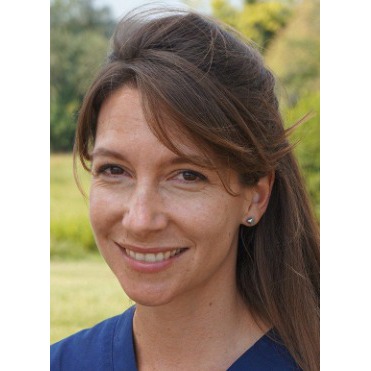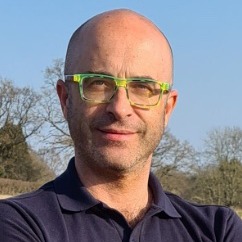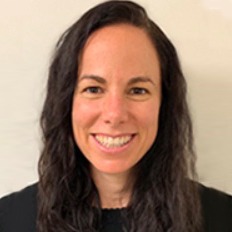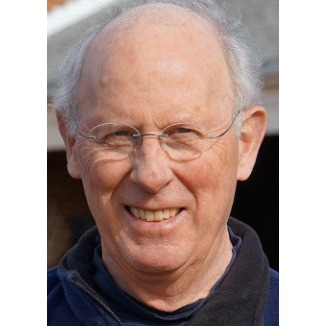Cellulitis, Septic Tenosynovitis & Lymphangitis
Species
Equine
Contact Hours
3 Hours - RACE Approved
Language
English
Discipline
Internal Medicine – Endocrinology, Haematology, Infectious Diseases, Parasitology & Oncology
Orthopaedics
Pathology - Clinical & Gross
Rehabilitation & Physiotherapy / Physical Therapy
Veterinary Partner
Equine



Recorded on: 25th October 2022
Panelists:
Krista Estell DVM, DACVIM (LAIM) - VA-MD College of Vet Med, USA
Luis Rubio-Martínez DVM, DVSc, PhD, DACVS, DECVS, DACVSMR, MRCVS - Sussex Equine Hospital, UK
Kyla Ortved PhD, DACVS, DACVSMR - University of Pennsylvania, USA
Moderator:
Nathaniel White DVM, MS, DACVS - USA
CONTENT DESCRIPTION
Trauma and subsequent infection in horses’ limbs cause significant morbidity and can be life threatening. Septic cellulitis is most often associated with wounds or severe bruising with resulting infection in the skin and underlying fascia. This leads to inflammation, pain, swelling from edema and lameness, the hallmarks of cellulitis and lymphangitis. If the infection is not controlled, it spreads via the lymphatics, resulting in excessive swelling, subcutaneous abscess formation and open wounds. Similarly, septic tenosynovitis in the digital sheath is most often caused by a wound or trauma. As result of the tendon sheath’s minimal defenses against contamination, these infections are difficult to treat and can become chronic and life threatening.
An international panel of multidisciplinary specialists will share their experience with diagnosing and treating these infections and subsequent complications. Aspects like physical examination, imaging options, antibiotic therapy, local treatment and potential surgery will be debated.
* Participants are encouraged to send in questions to info@vetpd.com prior to the panel discussion. There will also be the opportunity to raise questions during the discussion.
.
Dr. Estell received her veterinary degree from the Virginia-Maryland College of Veterinary Medicine, completed an internship at the Equine Medical Center, of Ocala, Florida and a residency in Large Animal Internal Medicine at UC Davis, California.
Dr. Estell comes to the college from UC Davis where, after completion of her residency, she was a primary care clinician for the equine medicine service. She has a keen interest in equine oncology and research in neurology with a special interest in the transition of the neonatal foal to extrauterine life, as well as equine infectious diseases including EHV-1 and bacterial pneumonia.
More InfoLuis graduated from the University of Zaragoza (Spain), followed by an equine internship at the Veterinary School of Hannover (Germany). After two years of equine practice in Spain and Latin America, he completed a PhD in equine orthopaedic infections at the Complutense University of Madrid (Spain). He then returned as an equine clinician to the University of Zaragoza, followed by a surgical residency and a doctoral degree (DVSc) in subchondral bone disease in racehorses at the Ontario Veterinary College (Canada). Since 2009, Luis has held faculty positions and taught equine surgery and lameness at the Universities of Guelph (Canada), Pretoria (South Africa) and Liverpool (UK). He has presented numerous times at national and international congresses, has published over 30 articles in peer-reviewed journals and has contributed to textbook chapters.
In December 2017 Luis joined the Sussex Equine Hospital as an equine surgeon. Luis is an RCVS, European and American specialist in Equine Surgery. Luis is also a Diplomat of the American College of Veterinary Sports Medicine and Rehabilitation (Equine). He enjoys all kinds of surgery, and has a special interest in minimally invasive surgery (arthroscopy and laparoscopy), upper airway and back and pelvis problems of the equine athlete.
During his free time Luis enjoys travelling, running, swimming, hiking and spending time with his family.
More InfoKyla Ortved, DVM, PhD, Dipl. ACVS, ACVSMR, is an associate professor of large animal surgery at University of Pennsylvania’s New Bolton Center, in Kennett Square. She received her veterinary degree from the University of Guelph in 2006 and completed her large animal surgical residency training at Cornell University in 2010. Following her residency, Kyla went on to obtain a PhD in equine cartilage repair at Cornell. In 2016, she joined the large animal surgery faculty at New Bolton Center, where she focuses on orthopedic surgery and research on gene and cell therapies for improving cartilage repair and preventing osteoarthritis.
More InfoDr. White is professor emeritus of equine surgery at Virginia Tech’s Marion duPont Scott Equine Medical Center. After receiving a Doctor of Veterinary Medicine at Cornell University in 1971, he completed an internship and residency in surgery at the University of California-Davis from 1971 to 1973 and earned a Master of Science degree in pathology at Kansas State University in 1976. He is a Diplomate of the American College of Veterinary Surgeons (ACVS). Dr. White, who has served on the faculties of both Kansas State University and the University of Georgia, joined the Marion duPont Scott Equine Medical Center in 1985, and held the positions of Theodora Ayer Randolph Professor of Surgery from 1987 to 2003 and subsequently he was the Jean Ellen Shehan Professor and Director from 2003-2012 at Virginia Tech.
Dr. White has authored and edited several books on equine colic including the Equine Acute Abdomen and a Handbook of Equine Colic. He has edited surgical texts include Current Techniques in Equine Surgery and Lameness, and Current Practice of Equine Surgery. He has been a director for the ACVS Veterinary Symposium 1997-2014 and served as the ACVS Director of Continuing Education from 2015-2019. He a past president of the ACVS and of the ACVS Research and Education Foundation. Dr. White is a former director-at-large for the American Association of Equine Practitioners (AAEP) and is an AAEP Past President. He is the founder and currently director of the Equine Disease Communication Center. Dr. White’s research interests include pathophysiology of ischemia-reperfusion, epidemiology of colic and infectious diseases, abdominal and orthopedic surgery, and treatment of orthopedic diseases and lameness. He is a member of the AAEP, the ACVS and the American Veterinary Medical Association.
More InfoVeterinary Student
Online Panel Discussion
USD 20.00
Qualified Vet
Online Panel Discussion
USD 95.00
Intern/Resident/PhD (Requires proof of status)
Online Panel Discussion
USD 70.00
Vet Nurse/Vet Tech (Requires proof of status)
Online Panel Discussion
USD 70.00
If the options you are looking for are unavailable, please contact us.
No tax will be added unless you are a UK taxpayer
Choose currency at checkout


















